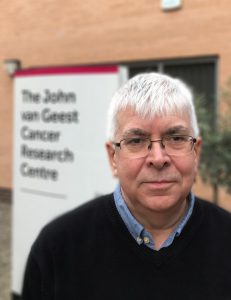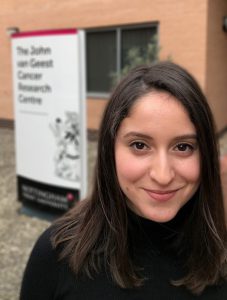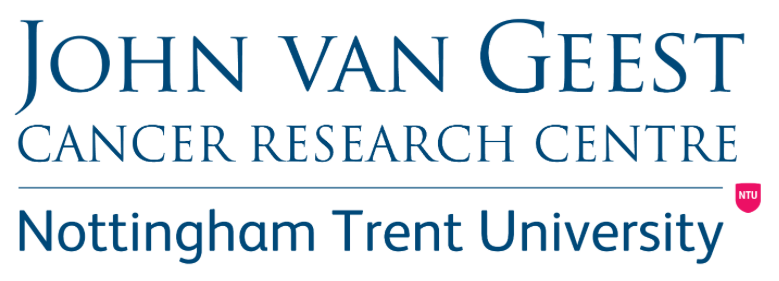
Professor Graham Pockley, Director, John van Geest Cancer Research Centre, Nottingham Trent University
Although great progress in the management and treatment of cancer has been made, the need for better approaches for the early diagnosis and better treatment of this terrible disease remains. We also need to better understand disease in individual patients, so that therapies can be tailored and more effective – so-called precision medicine.
The John van Geest Cancer Research Centre at Nottingham Trent University is undertaking work which is focused on improving the early diagnosis of cancers such as breast and prostate cancer.
We are devising new approaches for distinguishing between aggressive and non-aggressive diseases, predicting therapeutic response, and treating breast and prostate cancer, aggressive brain tumours and leukaemia.
We are also generating a better insight into how cancer can spread from the primary tumour to other tissues – a process known as ‘metastasis’. This is crucial, as metastasis accounts for about 90% of cancer-related deaths.
Of course, these studies would not be possible without the broader support of colleagues and experts in the University and our key scientific and clinical collaborators across the city, region and globe.
Through the University Alliance Doctoral Training Alliance (DTA) programme, we are working on the development of a new approach for the treatment of aggressive breast cancer.

Sarra Idri, University Alliance DTA PhD Student, John van Geest Cancer Research Centre, Nottingham Trent University
Breast cancer is the most prevalent cancer among women in the UK and worldwide, with Triple Negative Breast Cancer (TNBC) being the most aggressive – and difficult to treat – subtype of the disease. The prognosis for patients with TNBC is poor due to the aggressive nature of the disease and the limited number of drugs that can be used to treat it.
TNBC is called ‘triple negative’ because the cancer cells do not express any of the three molecules that are targeted by currently-available drugs. The only option for these patients is therefore chemotherapy. This is not always effective, however, and can have a number of significant side-effects which can limit a patient’s quality of life due to the fact that it can be toxic for non-cancerous cells.
The focus of the project through the Doctoral Training scheme is to take a new approach which involves making breast cancer cells more sensitive to attack by white blood ‘immune’ cells called natural killer (NK) cells by treating them with low doses of chemotherapy.
The advantages of this approach are that the doses of chemotherapy are not toxic and do not induce side-effects, and that the triggering of the immune response can not only kill the tumour, but can also lead to the development of ‘immune memory’ which could protect the patient from breast cancer and its spread in the long-term.
We have already shown that the treatment of breast cancer cells with low-dose chemotherapy induces them to express the molecules that controls the capacity of NK cells to recognise and kill tumour cells, and demonstrated that they do indeed become more sensitive to killing by NK cells.
This combination will enhance the effectiveness of NK cell-based therapies and bring long-lasting benefits, free of harmful side-effects, to patients with TNBC. Importantly, the approach could also be used for the treatment of patients with other forms of cancer.
We are undertaking this project in collaboration with Professor Graham Pawelec at the University of Tübingen in Germany. We hope this research will contribute to the search for improved approaches to manage and treat this life-threatening disease.




